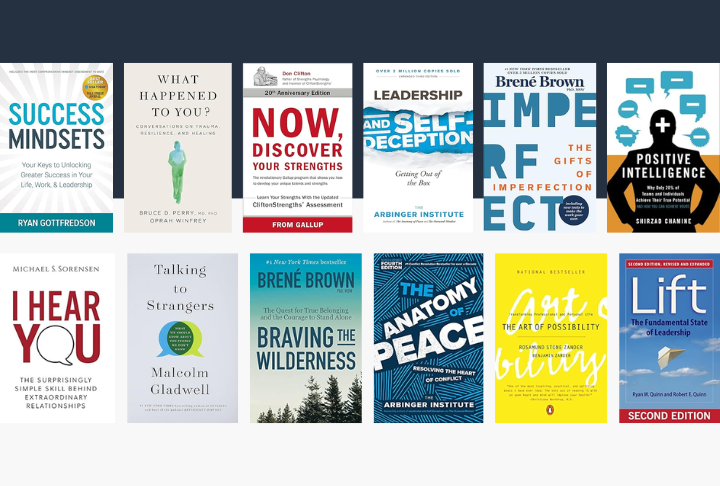Last week, I wrote an article entitled “Leader: You Need to Lose Weight” where I compared to working with leaders to change their mindsets to telling them that they need to lose weight. Recognizing that inviting transformation (whether mindsets or weight) is rather difficult to do effectively, I invited input from my readers on how I (and we) could do this more effectively.
I got a wide range of responses that I want to share with you.
Can you change others?
Let me start with this one:
-
“You cannot change anyone who does not want to change themselves!”
To me, this was a loaded response. There are aspects of this idea that I like, and other aspects that I dislike.
What I like is that it does not put the burden of transformation on the facilitator. I think that is a crucial thing to remember. In fact, another comment that I got was:
-
“My job is not to convince people.” Instead, our job is to make them happier/more effective/more successful.
I think it is important to remember that my job is to invite people to change. I can’t do the changing for them.
But, one thing that I don’t like about the quote (#1) is that it ignores the fact that I am being hired to create change.
This leads me to the aspect of the quote (#1) that I do not like: It seems to overlook the fact that while we cannot change anyone, I do believe we can create an environment that makes it more likely for transformation to occur, and that may be the most important aspect of my job.
How do we create an environment where transformation can occur?
Most of the comments that I received related to ideas for how to create an environment where transformation can occur (with a primary focus on the transformation of mindsets). Here are some of these ideas:
-
Create a value ladder that resembles the following:
- The bottom rung is “bloody awful”
- 2nd rung is something they can recognize (possibly in themselves)
- 3rd rung is probably where they might admit they are
- 4th rung is a slight improvement from where they are
- 5th rung is amazing
- 6th rung is “I didn’t even know it existed”
Then, use this as a framework to help them introspect: Where are you? Why there? Why not higher? What difference would there be if you were higher?
-
Come up with a relatable but powerful example/analogy
- One analogy that might work well is high blood pressure or cardiac disease – “The silent killers.”
- It may be something you are not aware you have an issue with until the worst happens (e.g., heart attack). It is only then that you wish you had done something about it.
- These things, if left untreated, will zap the energy out of one’s life (a very small percentage of people end up transforming their lives after a health “scare”)
- You need a specialist with specialized tools to identify and diagnose the disease
- Or, here is one I wrote about previously: Care For Your Mindsets Like You Do Your Teeth
- One analogy that might work well is high blood pressure or cardiac disease – “The silent killers.”
Such examples and analogies naturally invite introspection and, I believe, create a psychologically safe environment.
-
“Reframe what your invitation to tap into their values”
It is so easy for me to tap into my values, but much more effective if I can learn/understand their values. In asking about their values, it will allow us to reinforce that they have good feelings and that we know they care prior to inviting them to become more of their ideal selves.
-
Ask pointed questions
One amazing question that was sent in was: “What are the stories you (the leader, the leadership team) are telling yourself/yourselves about the people you lead/manage?
By asking a question like this, it allows the change agent to quickly get at the assumptions that may be holding the leaders back.
Another great question that came in cuts straight to the point: “Are you willing to look in the mirror?”
A third great question is: “What do you currently not have that would make your life better and easier?” You could even invite them to explore whether or not they have even pondered that question before and how easy/difficult it is for us to see our blind spots.
-
Invite them to look into the past
Invite them to explore times in their lives where they have shifted their mindsets, what led to that, what effect their prior mindset was having on them, and how their shifted mindset benefitted them.
-
Invite them to look into the future
Instead of focusing on where they have been or their various circumstances, focus solely on where they want to go and invite them to explore what it might take to accomplish “the impossible.”
What else is missing?
I loved these ideas and the inspiration they spurred within me as I think about the different groups I am working with. But, this surely is not all.
If you have any other suggestions, please email me or comment below.
Before I close, let me add something that always comes to mind when I think about personal transformation. This comes from Robert Quinn, who is one of the best personal and organizational change experts, and his book Deep Change.
To summarize, Quinn states that people transform for one of two reasons:
- Crisis, and
- Deep Learning
There is one of these two options that more commonly leads to transformation. This option is also the one that we don’t have personal control over: crisis.
The other one, deep learning, is something that we are in control over, and something that I want to always encourage. And, I feel like many of the suggestions above invite this.












2 Responses
Interesting set of responses, Ryan. If you are being hired by the CEO/HR, it seems to me it is about discovering the culture of the organization. If the culture is one of growing, won’t the employees be inspired to grow? If not, maybe it is time they get off the bus.
#1 What assumptions do you hold about Fixed and Growth Mindsets?
#2 What would the situation be like if you assumptions were not true?
#3 What concerns you about Mindsets?
#4 What feeling can you share that will help me understand your perspective?
#5 more, more, more questions of curiosity
I think you are right. It is critical to discover the culture of the organization, and perhaps even more critical to help the leaders/executives discover the true culture of the organization.